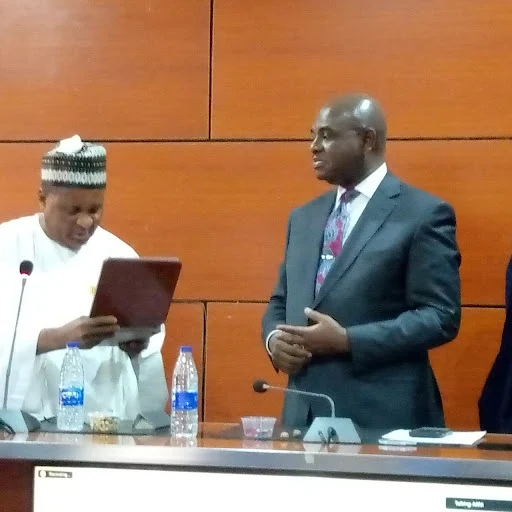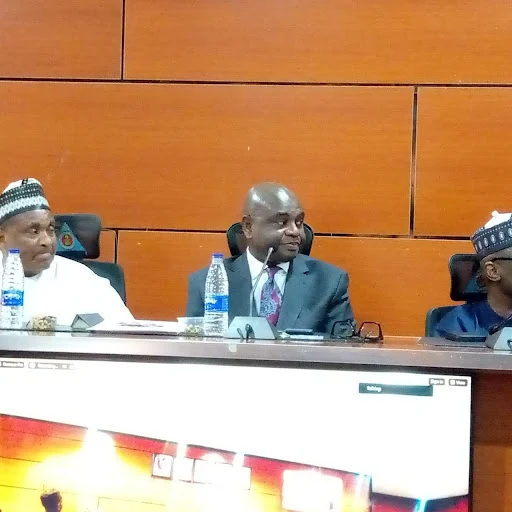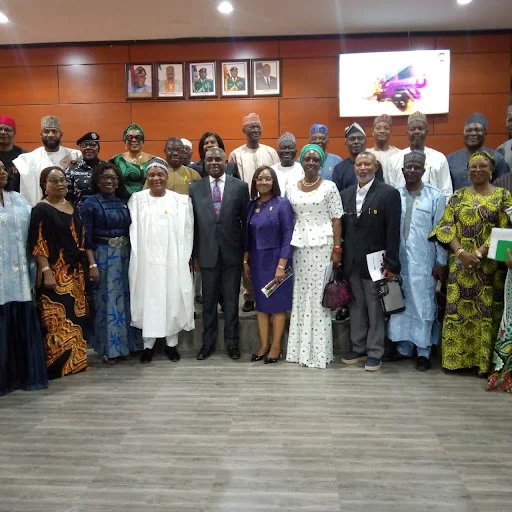Africa must develop its educational systems based on what actually works for the continent rather than the copy and paste approach in curriculum that does not resonate with the people.
The President of Africa School of Governance, Kigali, Rwanda, Professor Kingsley Moghalu stated this at a High-Level Strategic Dialogue on Governance Education in Africa organised by the Alumni Association of the National Institute AANI, in conjunction with the with the African School of Governance (ASG), Kigali, Rwanda on Friday 21st February 2025.
The dialogue held at Army Resource Centre in Abuja, brought together key technocrats from government and education sectors within the continent, to brainstorm on ways to build the culture of good governance in Africa, how to educate and raise new crop of leaders to secure the future of governance in the continent.
Professor Kingsley Moghalu who was the Keynote Speaker at the event pointed out that the institutions responsible for education of citizens and raising leaders are running on old curriculums while the rest of the world is already ahead.
Delivering a paper titled, "The Future of Governance Education in Africa: Charting a Path toward Excellence and Innovation" professor Moghalu said since development is identity, Africa must develop based on the context of its identity, by taking more in depth thoughts about governance and governance education in Africa because every society has the right to decide how it should be governed.
"The people must be educated based on that identity, we must bridge the gab in knowledge and ensure that those electing leaders are not doing so on wrong foundations and wrong ideological motives"
Professor Kingsley Moghalu stressed that the competence of the people holding positions and their level of knowledge of the policies that are required to govern matters. He said it is important that the crop of leaders that would deliver good governance are well aware of what it takes to govern and their ability to deliver to the people their promises.
"The curriculum of Governance education must include world view, we must have Innovators in governance education and Technology has a greater role in the future of education and governance because it must be data driven decisions"
"As we navigate the complexities of the 21st century, it has become increasingly clear that effective governance is the cornerstone of sustainable development, social justice, and economic prosperity. To achieve these goals, we must invest in a robust and forward-thinking system of governance education that equips the leaders of tomorrow with the knowledge, skills, and values needed to foster positive change"
"Governance education plays a crucial role in bridging the gap between traditional and modern forms of governance. Historically, African societies have been governed by kings and chiefs, whose authority was often hereditary and centralised. This form of governance, while effective in some contexts, lacked the mechanisms for accountability and citizen participation that are hallmarks of modern democratic governance"
Highlighting some of the Challenges Facing Governance Education in Africa, he listed limitations in Access to Quality Education, inadequate infrastructure, insufficient funding, and a shortage of qualified educators, outdated Curricula, Lack of Practical Experience, Political Interference in educational institutions amongst other hindrances.
In profering solutions to these challenges, the Professor said it is important that the continent adopt a multifaceted approach that encompasses several key strategies including bit not limited to expanding Access to Education, leveraging technology to provide online and distance learning opportunities,
Modernising Curricula that emphasize critical thinking, Promoting Practical Experience, Enhancing practical experience through internships, fieldwork, and experiential learning, Partnerships, ensuring Academic Freedom from political interference amongst others.
Professor Moghalu further Emphasize the importance of locally developed strategies and innovations that address the continent's unique challenges, fostering a culture of self-reliance and creativity, with solutions tailored to the specific needs and contexts of African communities.
Other speakers that made presentations at the Dialogue include, Director General, Institute for Peace and Conflict Resolution ICPR, Dr. Joseph Ochegwu and the Director General National Institute for Legislative and Democratic Studies, Professor Abubakar Sulaiman.








~2.png)



0 Comments